The buzzing, pesky, little fruit flies, known scientifically as Drosophila melanogaster, are the last thing you want to see in your kitchen, especially when preparing meals or enjoying breakfast. Once they have arrived, these tiny pests can be very difficult to eliminate. But worry not. With some thorough cleaning and a few household products, you can keep them at bay.
So, if you want to know how to get rid of fruit flies and prevent infestations, keep on reading!
Table of Contents
Signs of a fruit flies infestation
Adult fruit flies and their pupae are the most visible sign of fruit fly infestation. You’ll often spot adult fruit flies hovering around kitchens, rubbish bins, and near decaying fruits or vegetables.
These persistent pests are also attracted to empty liquor and beer bottles, turning your kitchen into a breeding ground. Waste bins containing food, garbage disposals, drains, and even mop buckets are common places where fruit flies reproduce.
Do fruit flies bite?
Fruit flies don’t bite humans. They are drawn to fermenting fruits and food debris. As these flies don’t feed on blood, they don’t have biting mouthparts, which means they pose no threat of biting, even in the presence of several thousand individuals.
Are fruit flies dangerous?
Fruit flies don’t spread diseases by biting or stinging. However, they can transfer germs from a dirty surface to a clean one and contaminate food with bacteria and other pathogens. They spread bacteria through the wounds created by their ovipositors in fruits, potentially causing illness if humans consume the contaminated fruit.
Among the bacteria, they may carry are Listeria, salmonella, and E.coli, all of which can cause food poisoning. When you come into contact with fruit flies, it is essential to wash your hands. You should also avoid killing them with bare hands. Furthermore, if fruits and vegetables are left out without protection, you should thoroughly rinse them.
How to get rid of fruit flies in the house
Maintaining a fruit fly-free home is a continuous process, not an overnight fix. However, by following a few simple steps, you can eliminate fruit flies and prevent future infestations.
Find the source of infestation
The initial step is to identify the source of the flies. It should be noted that, despite their name, fruit fries are not exclusive to fruit alone. The source of an infestation can also be found in other products, such as an overlooked bag of potatoes or a forgotten onion in a cupboard.
If they are gathering around exposed food, dispose of it and thoroughly clean the surrounding area. In some cases, removing their breeding grounds can effectively eliminate fruit flies.
Empty your bins
Compost bins and food waste containers should be cleaned regularly to prevent fruit flies from breeding. Emptying and wiping down these bins daily will not only reduce fruit fly breeding grounds but also help eliminate unpleasant kitchen odours.
Maintaining this routine also lowers the risk of attracting other common kitchen pests, ensuring a cleaner and healthier home environment.
Clean the kitchen drains
Fruit flies thrive and breed in warm, damp spaces. Therefore, you should also check your kitchen sink drains. Food leftovers in your drain can attract fruit flies, so it is advisable to run your garbage disposal and/or flush the drain on a regular basis.
If the drain is blocked or requires thorough cleaning, now is the time to address the issue. Using bleach, a drain cleaner, or a homemade mixture (for example, baking soda and vinegar) will deep clean the drain and help eliminate drain flies. Sealing the drain when the sink is not in use will further prevent these pests from emerging.
Wash and refrigerate fruits
Fruit flies often enter your home through the fruit you buy. To reduce the risk of fruit fly infestation and eliminate any eggs or larvae, wash your fruit thoroughly as soon as you bring it home.
Alternatively, you can store your fruit in a clean, airtight container or a fruit bowl, and keep it refrigerated to deter fruit flies. The cold environment inhibits the growth of these pests, so if you’re unsure, it’s best to keep your fruits and vegetables in the fridge.
Set a fruit fly trap
Dealing with persistent fruit flies can be frustrating, especially after cleaning your kitchen thoroughly. To get rid of any remaining fruit flies and prevent their return, setting a well-prepared trap is essential. Below, we provide a step-by-step guide to help you manage and eradicate these pesky insects.
Materials needed for your fruit fly trap
- Small containers or jars
- Apple cider vinegar
- Washing-up liquid
- Ripe chopped fruit (e.g., grapes or bananas)
- Cling film (or paper for a funnel alternative)
- Toothpick
1. Fill the containers – Pour a small amount of apple cider vinegar into each container. Add washing-up liquid and small pieces of ripe fruit to make the trap more enticing to the flies.
2. Cover and secure the traps – Cover the top of each container with cling film and use a toothpick to poke several small holes. This setup will allow the flies to enter but prevent them from escaping. If you don’t have cling film, roll a piece of paper into a cone-shaped funnel and place it in the opening of the container. Ensure the narrow end is inside the jar, creating a one-way entry for the flies.
3. Placement and monitoring – Place the prepared traps in strategic locations around your kitchen, especially near fruit bowls or areas where flies gather. Leave the traps in place for several days to effectively capture and reduce the fruit fly population.
Over time, the apple cider vinegar may evaporate or lose its potency. Check the traps daily and top up the vinegar if the liquid level gets low to maintain their effectiveness. This proactive approach ensures that any remaining flies are continually drawn in and trapped.
By following these steps and maintaining your fruit fly traps, you can successfully control and eliminate fruit flies in your kitchen. Regularly monitoring and refreshing the traps will help keep your space fly-free and hygienic.
Warning: Despite vinegar being the main ingredient and it is considered safe to consume, liquid dish soap is not. Make sure children cannot reach this solution.
Are you dealing with a pest infestation?
You don't have to be alone in the battle against pests. Hire a professional pest expert!
Call usUse a homemade spray to kill fruit flies
Did you know that you can use essential oils, including lemongrass, to get rid of fruit flies? Creating a lemongrass spray at home is simple and requires only a few ingredients. Here’s how to make it:
Pour 4 cups (950 mL) of water into the spray bottle. Add 14 drops of lemongrass essential oil and shake the bottle well to ensure the oil is evenly distributed in the water. Spray the mixture on surfaces where you’ve seen fruit flies, such as kitchen cabinets, countertops, and walls. Avoid spraying directly on any food.
Amongst the scents that repel fruit flies are also basil, peppermint, eucalyptus, lavender, and clove. These scents can be used in a similar spray recipe or simply placed around the house in diffusers or cotton balls for a fresh and fly-free environment.
Check also:
Where do fruit flies come from?
But first things first. How do fruit flies end up in your home in the first place? When fruit flies infest a home, it can seem as if they appear out of nowhere. A primary reason for this perception is the pests’ rapid reproduction and fast development. In a single breeding season, these insect pests may produce 500 offspring, and their entire life cycle only lasts one week.
After the female deposits her eggs, they will hatch within 24-30 hours. As a result, fruit fly populations will grow quickly. So this means that these factors make controlling pests difficult.
These insects lay their eggs inside drains that are not kept clean, trash bins, mop buckets, or directly on rotting fruits and vegetables.
Additionally, homeowners may carry these pests inside by bringing in garden crops. As ripe fruits are plentiful in the summer and autumn, fruit fly eggs and adult flies can end up in kitchens through fresh garden produce brought inside. Also, fruit flies can easily use an open window to get in.
Fruit flies’ life cycle
A fruit fly goes through four stages during development, as do most insects. An egg becomes a larva, gradually develops into a pupa, and then becomes an adult. Upon finding ripening fruit, the female bores tiny holes in it and lays her eggs there. Fruit flies’ eggs are shaped like a bananas and are white in colour.
Eggs will hatch quickly after they’ve been laid, and tiny larvae will emerge. After feeding for a while, the maggots will begin their next phase. After several moults, the larvae will move from the watery fruit to a dry area to complete their development.
When the larvae are no longer active, they transform into brown pupae with hard shells. This is the stage in which the fruit fly develops its features and becomes an adult after a few days. This process lasts between 7 and 9 days but could last longer depending on environmental conditions.
Check also: How to Get Rid of Flies
Hire a professional pest exterminator
If fruit flies invade your home and take over, you may need to call a professional pest control company that specialises in bug extermination. These companies employ advanced methods that are more aggressive than those you can use at home or buy from the store.
For serious insect infestations, a professional fogging treatment or fumigation service is often recommended. These methods provide a rapid and effective solution against persistent pest problems.
Are you dealing with a pest infestation?
You don't have to be alone in the battle against pests. Hire a professional pest expert!
Call usTakeaways
- Adult flies near food, garbage, and decaying produce are among the first signs of fruit fly infestation in your home
- The first step on how to get rid of fruit flies is identifying their source, such as rotting food or waste bins.
- Creating a simple fly trap using apple cider vinegar, washing-up liquid, and ripe fruit will help capture and reduce fruit fly populations in your home.
- Natural remedies, such as lemongrass or basil essential oil sprays, effectively repel fruit flies.
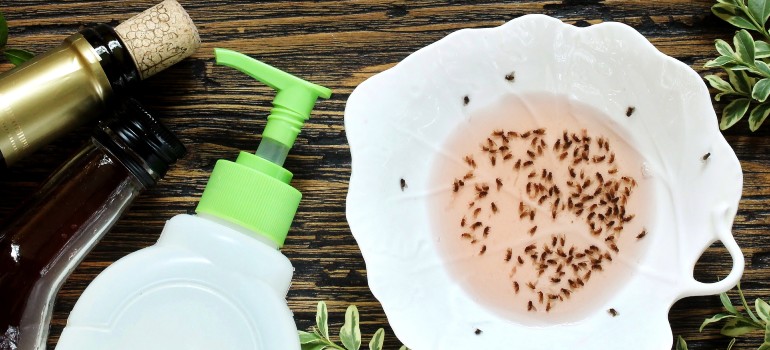

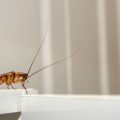


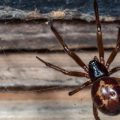
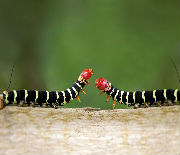
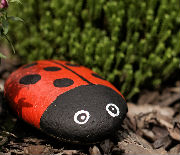
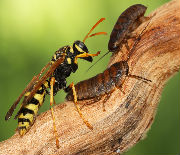
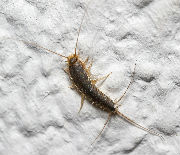
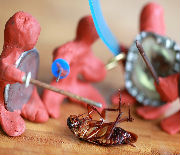
Leave a Reply